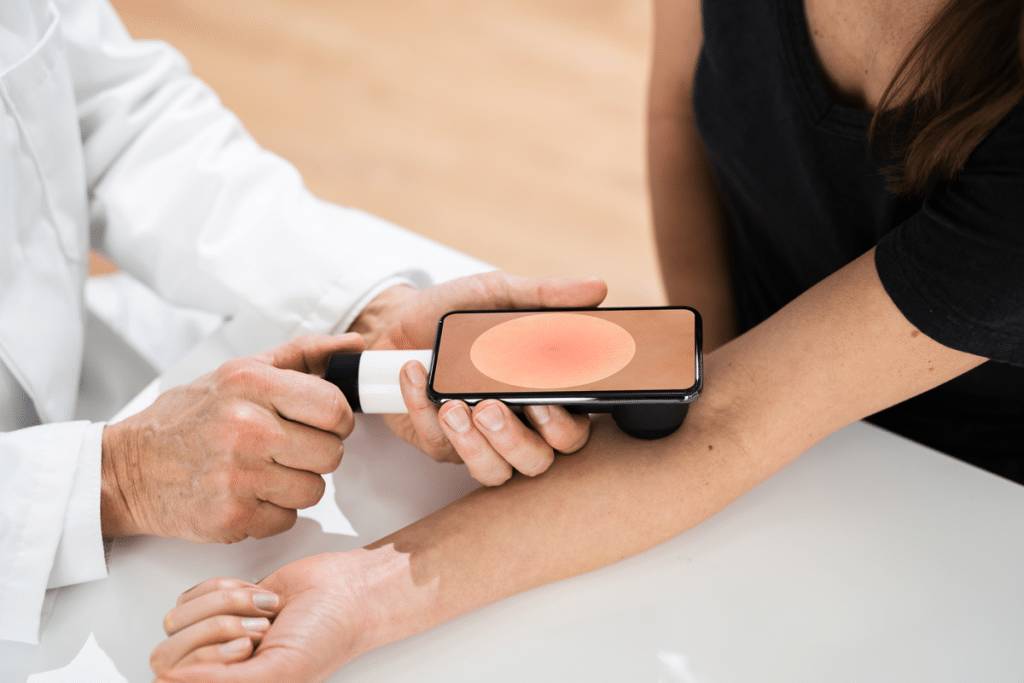Humans continue to turn to the internet with their health concerns. Dr. Google is the most sought after Doctor. Over 52% of consumers reported using WebMD in 2020 to seek out more information about their symptoms, from a cough or sore throat to a weird rash on their arm. People are constantly searching for an affordable, accessible, and easy way to get answers to their problems. Furthermore, technology continues to evolve and become more and more advanced. When you mix these two phenomena, you get solutions like Google’s new Dermatology Application and other similar artificial intelligence (AI) based applications that aim at providing those quick and easy answers to consumers.
The new Google Dermatology tool lets users upload 3 pictures of a skin, hair, or nail issue and then answer questions about symptoms. It then offers a list of possible conditions that the artificial intelligence system thinks it could be. The user is then prompted to look up resulting conditions in a Google Search for more information.
Creating a tool like this is suggested to help address key barriers in the access to dermatological care for consumers such as lower cost, increased access to dermatological care, improved care outcomes with earlier diagnosis, and increased knowledge for users to make more informed decisions about their healthcare. There is a shortage of dermatology specialists and so Google is hoping this can help alleviate some of the gaps the shortage creates.
While Google notes that the tool does not offer a diagnosis and should not be used as an alternative to medical advice, there is no way to determine how the user will react to the information given by the app. Does it make someone more likely or less likely to make a visit to the doctor?
Some sceptics think that this could prevent someone from visiting a professional or put off visiting a doctor, which creates an issue if it is a more serious condition or something that requires immediate attention.
While Google has attempted to be inclusive of all skin types, many people have pointed out that a large portion of the skin conditions pictured and used in the app do not represent patients with brown and dark brown skin or black skin, which we all know is very important to consider in someone’s diagnosis and treatment. So the app could be under or over-diagnosing people that have darker skin tones, which gives medical professionals pause for concern.
While AI will no doubt change and shape the future of medicine, it is important to put patients first and ensure they are getting the proper care and treatment that they deserve. And while this app may not directly affect the aesthetics and injection industry at this moment in time, it is important to be aware of the trends and changes that occur in the medical field.

